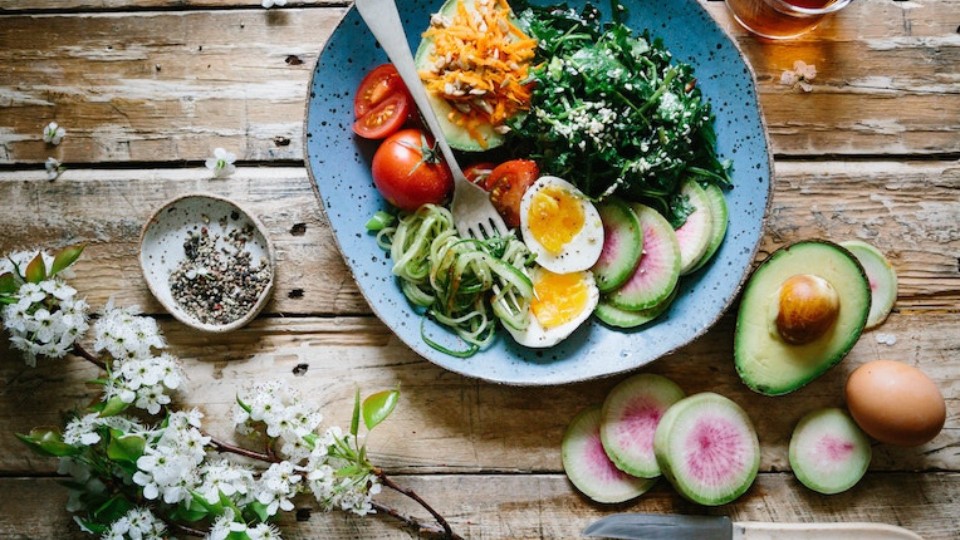
January is right around the corner, and it's time for resolutions! The holiday season is coming to an end, along with its generous and hearty meals. The new year often signifies a diet and taking charge of our health. However, diets are often associated with deprivation, restrictions, and, most importantly, long-term ineffectiveness. Between 86% to 94% of people who undergo restrictive diets regain the weight they lost within two years.
So why not do things differently this year by adding pleasure and gentleness? Instead of drastically changing your diet, here are four simple habits you can work on to kick-start the year in a positive way.
1. Start each day with a nourishing breakfast
A popular belief is that skipping breakfast is beneficial for weight loss. In reality, the opposite is true in most cases! Through several epidemiological studies, it has been observed that people who eat breakfast every day tend to have a lower weight than those who rarely or never eat breakfast.
Several hypotheses can explain this. Firstly, having breakfast helps regulate hunger until lunch, preventing you from arriving famished and overeating. As a result, the lunch meal is smaller and less calorie-dense compared to skipping breakfast. It also helps reduce cravings between meals, a time when we tend to reach for high-fat and high-sugar foods (store-bought muffins, pastries, oatmeal cookies, etc.).
To help you get started, here are two weeks of varied breakfast options.
2. Reduce the consumption of sugary drinks and opt for healthier alternatives
Carbonated drinks, vitamin waters, sweetened teas and coffees, and even fruit juices are all beverages that are high in sugars and low in nutrients. They are considered "empty calories" as they contribute significantly to the daily sugar and calorie intake without providing satiety.
For hydration, water remains the best option. However, here are some alternatives to replace sugary drinks
Sugary Drinks:
- Juice
- Carbonated drinks, vitamin waters
- Iced tea
- Flavored coffees, energy drinks
- Chocolate milk
Alternatives:
- Smoothies (without juice or added sugar)
- Flavored sparkling water (with lime, lemon, berries, cucumber, mint, cinnamon, etc.)
- Homemade unsweetened iced tea, regular tea, herbal tea
- Unsweetened coffee
- Plain milk or enriched soy beverages
Remember that your taste buds are accustomed to a certain amount of sugar. It may take a few weeks for you to adjust to a less sweet taste. So, take it gradually! For example, you can start by diluting the sugary drinks you enjoy and gradually increase the proportion of water.
3. Eat homemade meals as often as possible
Meals eaten outside the home can easily reach 1000 calories, as the portions served are generally larger and richer in fats, salt, and sugars. To have nutritionally interesting meals, it is advantageous to cook at home! Click here for an article with several tips for preparing quick meals.
4. Plan for snacks
Having breakfast helps curb hunger until dinner, but it's not uncommon to feel a little peckish during the day. Instead of buying commercially available snacks that are high in fat and/or added sugars, opt for homemade nutritious snacks.
The ideal snack should contain a mix of carbohydrates and protein, providing energy and satiety. As a result, you won't arrive at the next meal completely famished, which will not only impact the quantity but also the quality of the meal you choose. Click here for 50 snack ideas that are both nutritious and delicious.
By incorporating these habits into your daily routine, you can improve your overall well-being without resorting to strict diets or drastic changes.





